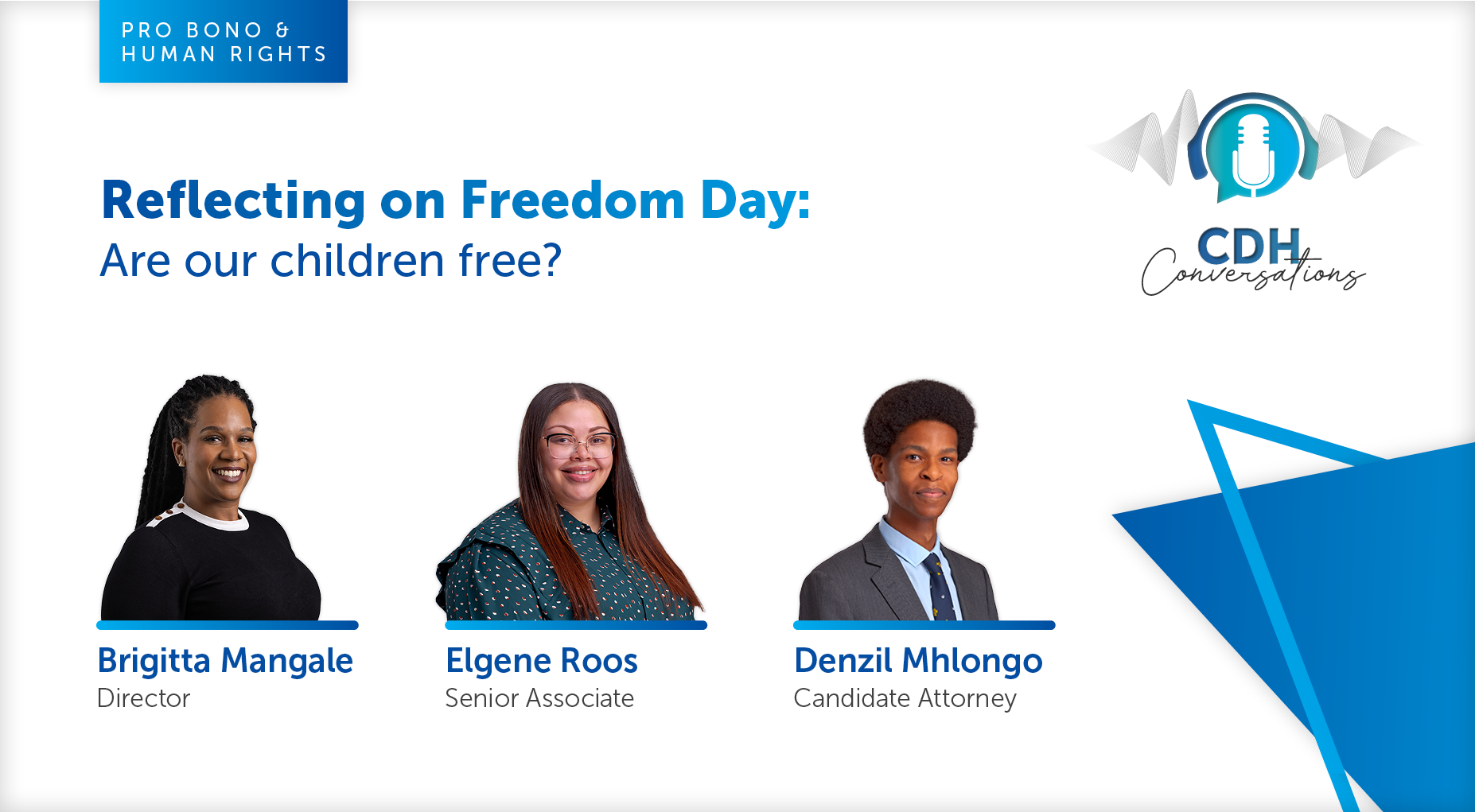Lease renewal clauses: More warning bells sound for landlords and tenants
In our Alert of 15 January 2020, we discussed the case in the Supreme Court of Appeal (SCA), Shepherd Real Estate Investments (Pty) Ltd v Roux Le Roux Motors CC (1318/2018) [2019] ZASCA 178 (2 December 2019). In that case, the Court ruled that the relevant clause was too vague to be enforceable. A renewal clause was the subject matter of another recent SCA case, Mlungisi Ndodana Sontsele v 140 Main Street Properties CC and Another (328/2019) [2020] ZASCA 85 (6 May 2020).
It is worthwhile to quote the entire clause in question as similar clauses feature all too regularly in lease agreements:
“The lease shall commence on 1 July 2004 and shall terminate on 31st of May 2014;
2.2 The [tenant] shall have an option to renew this agreement of lease for two further periods of nine (9) years and eleven (11) months each, such renewal periods being subject to:
2.2.1 the option in respect of each renewal shall be exercised by the [tenant] by giving the [landlord] notice in writing at least six (6) months before the expiry of the initial lease or of the expiry date of each successive renewal period, whatever the case may be;
2.2.2 the same terms and conditions of [the landlord] shall apply to all renewal periods thereof save that the rental consideration will be determined by agreement between the parties based on the prevailing market rental’s [sic] applicable to the property;
2.2.3 in the event of the parties not being able to agree on the commencement rental for any of the option periods, such rental will be determined by a suitably qualified person appointed by the President of the Cape of Good Hope Estate Agents Board.”
The tenant duly exercised the option to renew at least 6 months before the expiry of the initial lease. However, when the parties could not agree on the rental in accordance with clause 2.2.2 the tenant did not invoke clause 2.2.3 (ie did not call for determination of the rental by the suitably qualified person) before the end of the initial period of the lease.
In the event, the landlord applied for the eviction of the tenant on the basis that the lease had come to an end.
The SCA held that, as clause 2.2.3 did not survive the agreement which had ended through the effluxion of time, it could not avail the tenant. The court accordingly ordered the eviction of the tenant.
A dispute about a renewal clause actually also recently ended up in the Constitutional Court in the case of Beadica 231 CC and Others v Trustees for the time being of the Oregon Trust and Others [2020] ZACC 13.
The facts were the following: Sale’s Hire CC was a franchisor of a business that rented and sold tools and equipment. Sale’s Hire CC wished to empower some of its long-time senior employees. To that end, Sale’s Hire CC concluded franchise agreements with four close corporations (Tenants) of which the employees were members. The franchise agreement was for a period of 10 years.
The Tenants acquired their franchise businesses in terms of a black economic empowerment initiative financed by the National Empowerment Fund (Fund).
At the same time the Oregon Trust (Landlord) leased premises to the Tenants from which they operated their businesses. The leases had an initial period of 5 years. The lease agreements provided each of the Tenants with an option to renew their lease for a further 5-year period. Clause 20.1 of the lease agreements provided as follows:
“The [Tenant] shall have the right to extend the Lease Period by a further period as set out in section 13 of the Schedule on the same terms and conditions as set out herein, save as to rental, provided that the [Tenant] gives the [Landlord] written notice of its exercising of the option of renewal at least six (6) months prior to the termination date.”
The Tenants failed to give the Landlord written notice to exercise the option at least 6 months prior to the termination date. The Tenants did send email communication to the Landlord after the date had passed raising the issue of the renewal of the leases.
Importantly, the franchise agreements give Sale’s Hire CC an election to terminate the franchise agreements in the event that Tenants were ejected from the approved locations, or if the lease agreements in respect of the approved locations were terminated. It was apparent that the Tenants’ businesses would collapse if Sale’s Hire CC exercised its contractual power to terminate the franchise agreements.
The Tenants brought an urgent application in the High Court seeking an order declaring that the renewal options had been validly exercised and prohibiting the Landlord from taking steps to evict them. The Tenants contended that the strict enforcement of the renewal clause of the lease agreements would be contrary to public policy, or unconscionable in the circumstances of the case. The Landlord, in turn, brought a counter-application for the Tenants’ eviction from the leased premises.
The Constitutional Court considered at great length the issue of the notion of fairness and good faith in contracts. However, the majority of the Court held that the Tenants themselves simply neglected to comply with the clauses in circumstances where they could have complied with them. The Court stated the following at paragraph 102:
“The [Tenants] have failed to discharge the onus of demonstrating that the enforcement of the impugned contractual terms would be contrary to public policy. It is fatal to the [Tenants’] case that they did not adequately explain why they did not comply with the terms that they seek to avoid. In any event, the public policy considerations advanced by the [Tenants] are insufficient to demonstrate that it would be contrary to public policy to enforce the terms they seek to avoid.”
The Constitutional Court accordingly found in favour of the Landlord.
However, in a minority judgment, Judge Froneman took a more paternalistic view. He drew attention to the obviously unequal relationship between the parties, the lack of sophistication of the Tenants, the fact that they “were novices in how to play a hard business game”, their ignorance of the “niceties of law”, and the inequality of bargaining power between the parties. He accordingly stated that he would have found in favour of the Tenants on the facts of the case.
I would suggest the following takeaways from the recent cases referred to above:
- Renewal clauses in leases are clearly problematic in practice and cause a lot of disputes.
- Accordingly, such clauses should be drafted with utmost care in such a manner that the following, at least, are abundantly clear: by when must the right of renewal be exercised; how must the right of renewal be exercised (eg by written notice); what happens if the right of renewal is exercised and the parties cannot agree on the terms of the renewed lease (eg as to rental).
- Often there is inequality of bargaining power between landlords and tenants. In the light of the direction in which our courts appear to be moving, it may make sense for landlords to ensure that renewal clauses are drafted in plain language and are emphasised by way of, say, bolded or underlined text. The lease could also contain a clause requiring the landlord, when a lease comes up for renewal, to first send a notice to the tenant stating that fact and setting out the steps that the tenant must take to exercise the renewal option.
- A party who has the right to renew a lease should somehow set up a reminder for itself so that it is alerted to the fact that a lease agreement is coming up for renewal.
- Both parties to a lease should obtain legal advice when negotiating, drafting and concluding the lease.
The information and material published on this website is provided for general purposes only and does not constitute legal advice. We make every effort to ensure that the content is updated regularly and to offer the most current and accurate information. Please consult one of our lawyers on any specific legal problem or matter. We accept no responsibility for any loss or damage, whether direct or consequential, which may arise from reliance on the information contained in these pages. Please refer to our full terms and conditions. Copyright © 2025 Cliffe Dekker Hofmeyr. All rights reserved. For permission to reproduce an article or publication, please contact us cliffedekkerhofmeyr@cdhlegal.com.
Subscribe
We support our clients’ strategic and operational needs by offering innovative, integrated and high quality thought leadership. To stay up to date on the latest legal developments that may potentially impact your business, subscribe to our alerts, seminar and webinar invitations.
Subscribe




